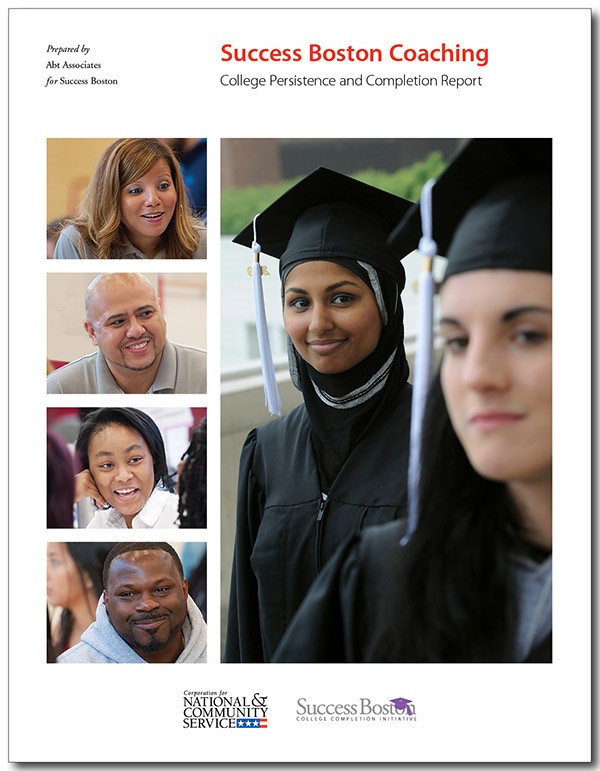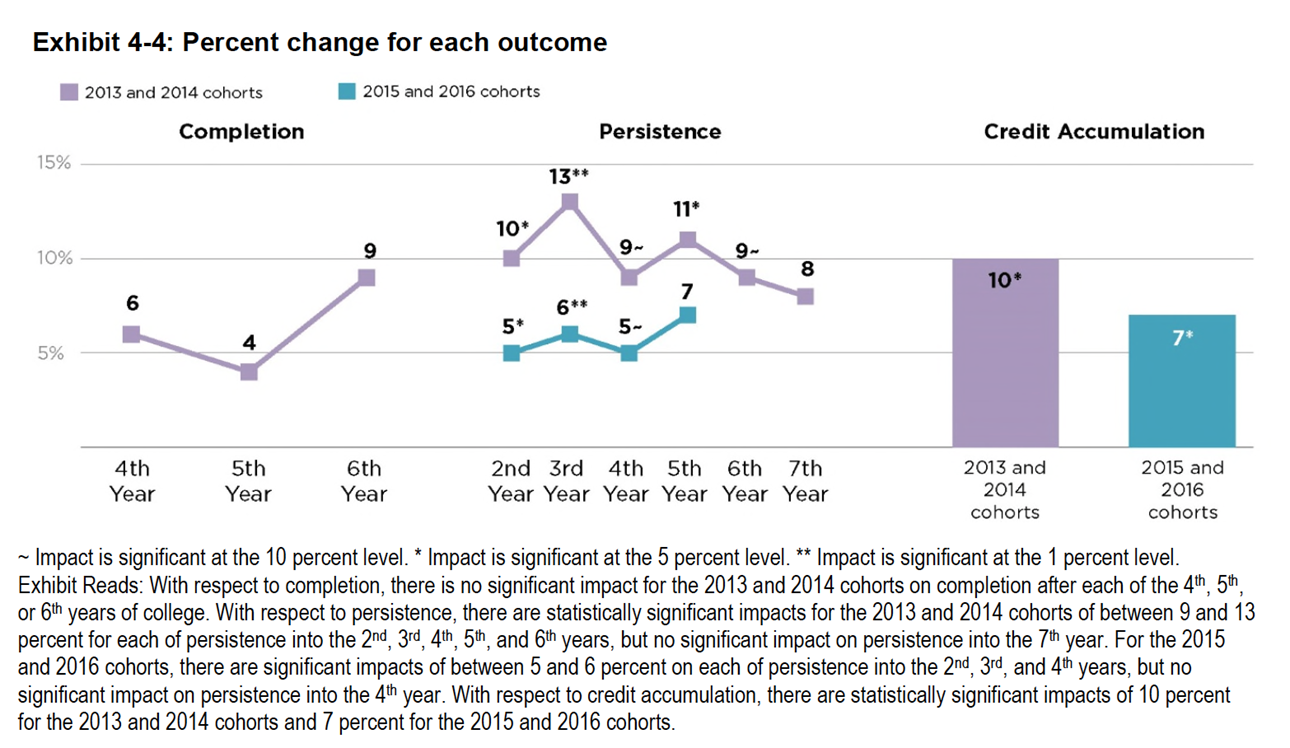New report measures positive impact of Success Boston coaching on student persistence, performance
October 13, 2021
Boston – The latest in the series of annual evaluations of the impact of Success Boston’s coaching model on student measures of success finds continuing evidence of the positive effects of coaching in the first two years of a student’s higher education. However, researchers from Abt Associates caution that the gains fade somewhat in the years after coaching ends. The report, Success Boston Coaching: College Persistence and Completion, looks at persistence for students in the Boston Public Schools’ graduating classes of 2013 to 2016, including college completion data for students in the Class of 2013.
“This report demonstrates the continuing impact that Success Boston coaching has for students as they navigate the academic, financial and social challenges of higher education,” said Lee Pelton, President and CEO of the Boston Foundation. “At the same time, it also shows the need for us to identify the wraparound and continuing supports that pick up where coaching leaves off, if we want to ensure that even larger numbers of students complete their postsecondary work.”
Researchers divided their analysis into two cohorts - one for students from the BPS Classes of 2013 and 2014, when Success Boston coaching was a smaller program, and the other for the Classes of 2015 and 2016, during which time Success Boston was able to expand its services markedly with support of a federal grant from the Social Innovation Fund. But in both cases, the findings were parallel. Coached students were anywhere from 5 to 13 percent more likely to persist in college from year to year than their non-coached peers. However, researchers noted that while there was still a positive difference in persistence in later years, it lost its statistical significance.
“Overall, the data continue to show a positive impact for Success Boston coaching, especially during the first two years of a student’s career when they are actively being coached,” said Tamara Linkow, Principal Associate, Division of Social and Economic Policy at Abt Associates, and co-author of the evaluation. “But while the difference between coached and non-coached students is still evident in years after coaching, it does show a sign of fading over time. It is also less evident with the classes of 2015 and 2016, in part because overall, student persistence has improved markedly for both coached and non-coached students in those classes.”
The researchers also looked at another indicator - the number of credits accumulated by coached students versus their non-coached peers, and there found that there was a significant difference. Coached students earned anywhere from 7 to 10 percent more credits toward graduation requirements by the end of their fourth year in school than their non-coached peers.
The research also looked at completion data for the 2013 and 2014 cohorts of students to compare how the coached and non-coached students fared on completion. While coached students were from 4 to 9 percent more likely to complete their degree in 4, 5, or 6 years, the difference was not large enough to be considered statistically significant.
Researchers compared Success Boston’s results with other programs offering similar models. They found those programs with more substantial results over time, including greater impact on completion, utilized elements such as longer-term coaching, financial aid, and/or stricter requirements such as full-time enrollment to take part in the program.
“The continuing evidence is that Success Boston coaches have been making a difference, and that many supports pioneered by Success Boston are now implemented for all entering students at several two- and four-year colleges,” said Antoniya Marinova, Director, Education to Career at the Boston Foundation. “We also see more clearly the ways that we might supplement Success Boston’s work to ensure that students have the best available supports throughout their college careers.”


